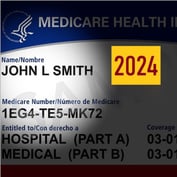Federal regulators could block any efforts by Cigna to combine with Humana, even though the companies appear to have little obvious operational overlap, according to Wells Fargo securities analysts.
Humana has an 18% share of enrollment in the Medicare Advantage market, and Cigna has just a 2% share in that market, according to KFF.
But Stephen Baxter and other Wells Fargo analysts note that Cigna has focused on building a large share of the market in the states where it does offer Medicare Advantage plans: It has a 25% share in Texas, a 15% share in Tennessee and a 10% share in Arizona.
“Recent antitrust enforcement has been quite vigorous, and we would likely expect a relatively drawn-out process,” the analysts write.
What it means: Cigna and Humana could make a big deal, but they might not. If they do, and you’re in Texas or Tennessee, it’s possible that any clients with Cigna Medicare Advantage plan coverage will end up with a new coverage provider because of divestitures Cigna would have to make to get antitrust regulator approval for the deal.
The source: The Wall Street Journal on Wednesday reported news of the talks in an exclusive article.
The companies could announce a stock-and-cash deal by the end of the year, the paper reported, citing “people familiar with the matter.”
The companies: Cigna is a Bloomfield, Connecticut-based company that’s a big player in the corporate health plan, health care services, dental plan, pharmacy benefits management and Medicare Part D prescription drug coverage markets.
It reported $1.8 billion in net income for the third quarter on $49 billion in revenue.
It provides or administers major medical coverage for 20 million people, including about 600,000 Medicare Advantage plan enrollees.
It also provides or administers dental coverage for 19 million people and has 2.5 million Medicare Part D drug plan enrollees.












 Copyright © 2024 ALM Global, LLC. All Rights Reserved.
Copyright © 2024 ALM Global, LLC. All Rights Reserved.